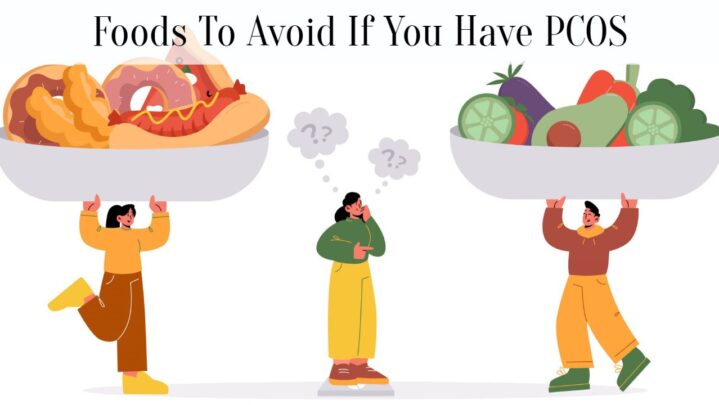Women frequently experience PCOS, a disorder that affects the reproductive hormones and is common. An irregular period or absence of menstruation is one of the prevalent symptoms. By adopting healthy habits and working with your Gynecologist, PCOS can be controlled. Food and lifestyle choices have a significant impact on PCOS and the symptoms present. Find out more about the meals you should eat and the ones you should stay away from.
What is PCOS and what effects does it have on the body?
Women who have PCOS, a syndrome that affects hormone levels, may experience PCOS. With 10% of women in the aforementioned age group affected, this illness is very frequent. Ovarian alterations are a result of PCOS’s impact on female reproductive hormones.
PCOS Foods to Avoid
Typically, PCOS is accompanied by weight gain. PCOS females must make certain dietary changes if they want to control their weight. Foods that are ideal for managing PCOS should be consumed, while those that are harmful should be avoided.
1) Processed food: Refined flour is present in foods such as white rice, sweets, bread, potatoes, and pastries. The worst meal for PCOS is refined carbs, which should be avoided. Diabetes is more likely to affect PCOS women. Our bodies produce more insulin when we consume refined carbs, which can result in diabetes.
2)Caffeine: Containing beverages, such as coffee, causes the body’s levels of the female hormone estrogen to rise. Hormone levels are already off with PCOS. Increased coffee consumption can make the problem worse. It is better to stay away from coffee and other caffeinated beverages.
3) Fried foods: These include a lot of trans and harmful saturated fats. They are unhealthy and raise the possibility of gaining weight. Moreover, they raise blood sugar levels and have been linked to bloating and gastrointestinal issues. Fried meals are inflammatory foods as well, and can make PCOS symptoms worse. These should be absolutely avoided.
4) Alcohol: If you have PCOS, some doctors advise against drinking at all. Alcohol drinking can boost testosterone hormone levels and potentially cause disturbances in the hormones needed to induce ovulation. It lowers blood sugar levels, which makes some people gain weight and become nutritionally deficient. It also causes increased food cravings. For some people, it causes migraines.





